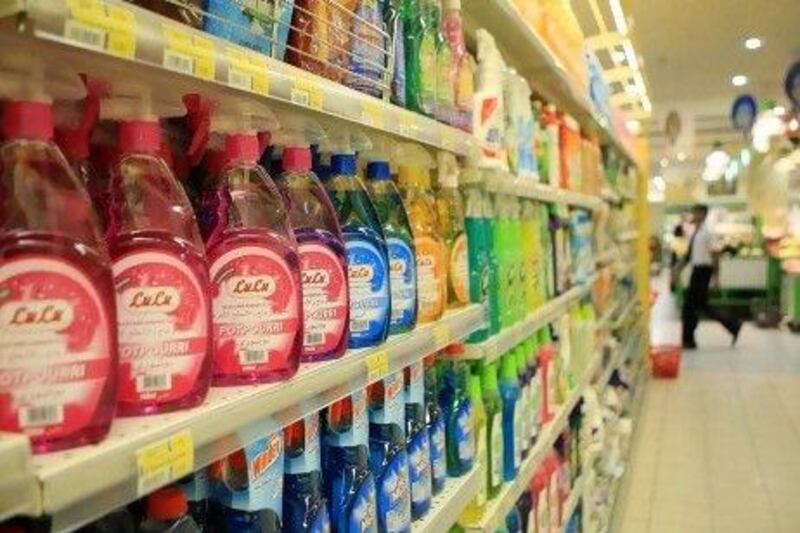Price controls on hundreds of products in the Emirates designed to curb inflation have prompted supermarkets to rethink their business models as profits are squeezed.
Retailers are considering a number of measures to manage the impact on margins, including increasing the prices of luxury goods, selling advertising space in stores and increasing sales of own-brand products.
"We are going and tapping new sources," said V Nandakumar, a spokesman for Emke Group, which owns Lulu Hypermarket. "Our teams are going to Germany, France, China, Japan and trying to source new suppliers and products so we can avoid the importers and distributors here."
Lulu Hypermarket plans to double the number of products it sells under its own brand, on which it makes more profit than on big name brands, from about 10 per cent of sales to 20 per cent.
The retailer is building new relationships with global manufacturers to produce hundreds of food items and products under the Lulu name.
"It will be a huge increase, [own-brand products] should be around at least 20 per cent. That is the industry benchmark," Mr Nandakumar said. "What we do is go to the guys in the business of manufacturing and commission them to make Lulu milk powder, for example."
Lulu's decision to increase own-brand products comes in part because government price controls are eating into margins.
The global consultancy Booz & Company says retailers in the GCC could achieve private-label market share of 15 to 25 per cent of grocery sales, which would represent a market size of US$5 billion (Dh18.36bn) to $9bn, and a net margin increment of 1 to 2 per cent.
Supermarkets have been asked to lower or fix the prices of hundreds of products, such as rice, bread and flour, until the end of the year.
"We are under enormous pressure for price control," said Fred Watts, the operations director at Almaya Supermarket. "We have to conform to it because we get fined and checked on. The Government is trying to keep the cost of living down and that is one of the ways they have to do it. We have to try and make it work for them."
Mr Watts said dealing with the price controls had become an "all-encompassing task" in managing price increases, the distribution chain and suppliers.
Almaya is trying to offer a variety of prices and products at its stores, with a basket of basic commodities at very low prices and luxury goods at increased prices.
"I appreciate where [the Government] is coming from because inflation could fly, it could just fly," said Mr Watts.
"I can't stop bringing in rice so it's one of those things we have to manage internally. The consumers are happy to pay a little more margin on something that becomes a luxury."
Even if the Government decides to drop its price controls next year, Lulu says it will aim to stabilise the prices of basic commodities.
"Given the option, we would like to keep these products as low as possible," Mr Nandakumar said. "We are in a fiercely competitive market."
To keep basic commodity prices low, Lulu is also considering selling advertising space in its stores to well-known brands.
"There will be a lot of activity which will be driven by other direct revenue sources," Mr Nandakumar said.
"For example, I will sell space to Lipton, to Unilever to Procter & Gamble inside my store, advertising space during a promotion, like a food festival."
Lulu then hopes to get cash or a discount on products from the branded suppliers.
"If we tell them to reduce costs, they won't do that unless I give something else," Mr Nandakumar said.
The hypermarket also hopes to issue coupons inside stores and online, which will give discounts on branded products. Suppliers will absorb the cost in return for marketing literature on the coupons.
"We have put down a clear policy with our buying managers," Mr Nandakumar said.
"If a supplier wants to increase the price of basic commodities, these guys need to go to the Ministry of Economy."





